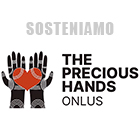
The Herit-US Project (www.heritus-project.eu), was developed as part of the Heritage Management program at Palazzo Spinelli in Florence, Italy. The students, working on the theme of accessibility to museums and heritage sites as part of the course, were guided by the professors to develop the concept for the project and then researched funding opportunities for implementation. The partnership arose from an existing network of organisations involved in heritage development, of which Palazzo Spinelli was a founding partner.
The main objective of the project was to create a multi-lingual interactive platform for sensory and cognitive accessibility to museums and heritage sites, capable of becoming a living tool for both heritage operators and the public in order to share information and learning experiences. Alongside, the project aimed to implement a series of outreach events in the four partner countries to showcase activities in the sector, creating a further opportunity for knowledge sharing and growth.
The project was based on a series of complementary activities staring with context research and analysis with the target groups of sensory accessibility (hearing, sight, autism spectrum) and cognitive accessibility for disengaged young people (age 15-24). As a result, partners organised outreach events in each target group with stakeholders (seminars, workshops, conferences), then created and peer-reviewed a web platform for knowledge sharing and audience development for the target sectors.
The result of the project is www.accessculture.eu, an interactive platform for cultural access regarding sensory and cognitive good practices at museums and heritage sites in the four partner countries of Italy, Spain, Portugal and Austria. Registered users can download and study existing good practices and use the platform as a knowledge sharing forum. Heritage operators and the target audiences benefit from a single European site dedicated to collecting and disseminating good access practices.
See all the details and outcomes on the Creative Europe Project Results portal.
Keep following our pages on Facebook and Instagram as the platform develops and grows!











